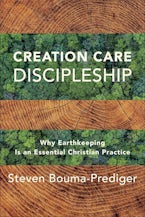- Home
- biography & autobiography
- religion
- Shoutin' in the Fire

Shoutin' in the Fire
An American Epistle
By: Danté Stewart
272 Pages
- Hardcover
- ISBN: 9780593239629
- Published By: The Crown Publishing Group
- Published: October 2021
$25.00
Faith and love are at the forefront of Danté Stewart’s debut publication, Shoutin’ in the Fire: An American Epistle. It is a letter which is imbued with honesty, integrity, and a deep longing for love in the midst of a country whose foundation includes oppression, inequity, racism, and misogyny. Stewart’s first work shines even as it does not downplay the suffering, sadness, and generational trauma that Black bodies and Black Christians endure.
The subtitle of Stewart’s work is not a placeholder—his writing reads like a letter thoughtfully written to his son, or to his future students in theological classes he may teach one day. His epistle does carry this goal: to share love with and for Black bodies, spirits, and minds. He describes how he strives to provide love for Blackness in “a country that didn’t quite understand the meaning of love . . . None of us could protect ourselves in places that were not concerned with our protection, but we could be loved” (167).
Vulnerability is abundant as Stewart details his own journey to self-realization through his faith. He shares how his belief system was shaken to its core after he experienced the “apathetic” white Christian response to the public lynching and murder of Black bodies (79). Stewart’s own personal upbringing and lived experience greatly shape his theology and the ways that he connects with Jesus. He journeys from his upbringing in a Black Pentecostal church, to his time in white Evangelical Christian settings, to his current reality as a Black theologian and writer.
The current that propels Stewart’s writing forward is love. Throughout his reflections, stories, and theological insights, he centers his theology and faith on love. Over and over again he emphasizes that love is not only the value that centers him but the value that centers any Christian.
Stewart shows that, especially for Black Christians in America, love is essential and imperative. Writing as the father of a Black child himself, Stewart vows: “I will teach him how to love, and how to really love by redefining dreaming, and living, and believing in something that seems elusive. I will teach him that sometimes dreams don’t always uplift; sometimes they destroy . . . To live, to love, to talk about God’s future and resurrection and hope is to dream a little bit. Dreams are not always the stuff of fantasy and failure. It is also the stuff of survival and a deep love of life and one’s future” (216-217).
Dreams and faith and love require honesty and not “fantasy.” This may be challenging for those who are reading from places of privilege, or who have yet to approach their own theologies or worldviews in ways that make them uncomfortable, but invite growth. Ultimately, Stewart is inviting us—readers, students, neighbors, and Americans—to grow in our faith and our love.
Stewart’s readers can hope to gain the insight that he candidly shares with us. The book’s call to action is to allow Stewart’s theology to make an impact on us—to take in his words just as he takes in the words of James Baldwin and Toni Morrison and Martin Luther King, Jr. “Theology,” Stewart argues, “is not just speaking or wrestling; it is also helping us dream a little bit of the future God has for us” (111). Faith as Stewart lives it “is as normal and as powerful as choosing to keep on living in the face of white supremacist capitalist brutality, economic instability, political polarization, religious nationalism, and the ongoing struggle of the distance between faith, Jesus, and our lives in the present” (122).
This epistle is a challenge to all people of faith to live better and to love better, and to do so by actively assessing ourselves and our faith. Stewart’s writing calls us to reflect on our own faith lives, and reminds us that Jesus most definitely “ain’t a blue-eyed white Republican” (123). The challenge lies in whether or not we can receive these prophetic words, even if our faith feels comfortable and convenient already. This epistle challenges our normal, ordinary faith to be “honest with the word as it is” (123) and to imagine how the Holy Spirit is at work even in the midst of this violent and tough world.
Rev. Hannah D. Olson is ordained in the Evangelical Lutheran Church in America and works as a hospital chaplain.
Hannah D. OlsonDate Of Review:September 30, 2023
Danté Stewart is a speaker and a writer whose work in the areas of race, religion, and politics has been featured on CNN and in The Washington Post, Christianity Today, Sojourners, The Witness: A Black Christian Collective, Comment, and elsewhere. He received his BA in sociology from Clemson University and is currently studying at the Candler School of Theology at Emory University in Atlanta, Georgia.











